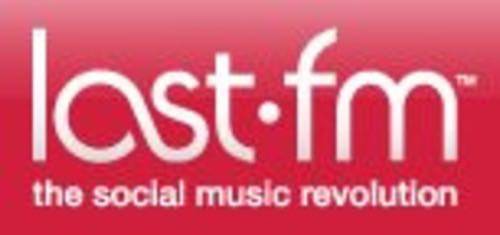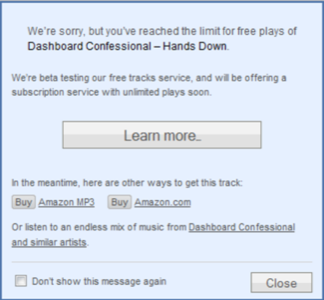Today, Last.fm is announcing some stats on their free streaming radio service and its impact on music sales. Contrary to what the labels would have you believe, it appears that free music is, in fact, good for the industry, leading to increased revenue for Last.fm’s partners, like Amazon and iTunes, who are benefiting from January’s launch of the site’s free on-demand music service.

Last.fm’s on-demand service, which lets users play any particular song, only allows a user to stream a song in full three times. After which, they’re prompted to purchase the track through one of the affiliate services.
Getting Prompted to Buy on Last.fm

Not only has this on-demand service been good for Last.fm – minutes spent on site are up 118% month-on-month – the service is good for partners, too, like Amazon, whose overall CD and download sales through Last.fm increased by 119%. And since the service launched, Last.fm users are purchasing 66% more albums than before.
The service, which launched January 23rd, was made possible by deals Last.fm forged with the major labels, EMI, Sony BMG, Universal, and Warner. However, independent artists and labels can also take advantage of the service to gain more exposure among music fans and make money, too, since Last.fm pays every time someone streams a song, either through a royalty collection service or, for indies, the artists can be paid directly.
Currently, the on-demand service features over 5 million tracks, which makes it easy for music fans to find the songs from their favorite artists and bands.
These numbers prove something that we’ve known all along – sharing music (or videos or any files, really) encourages people to buy more of the product in question, as opposed to leading to lost revenue, as once feared.
Martin Stiksel, Last.fm’s Co-Founder agrees, stating, “In just over two months it’s become clear that people will buy CDs and downloads if they get access to the kind of service we offer.”
I would say Last.fm could even drop the play-3-times prompt and the numbers would still hold up given properly advertised affiliate links, but something tells me the labels aren’t ready for that step just yet.

















